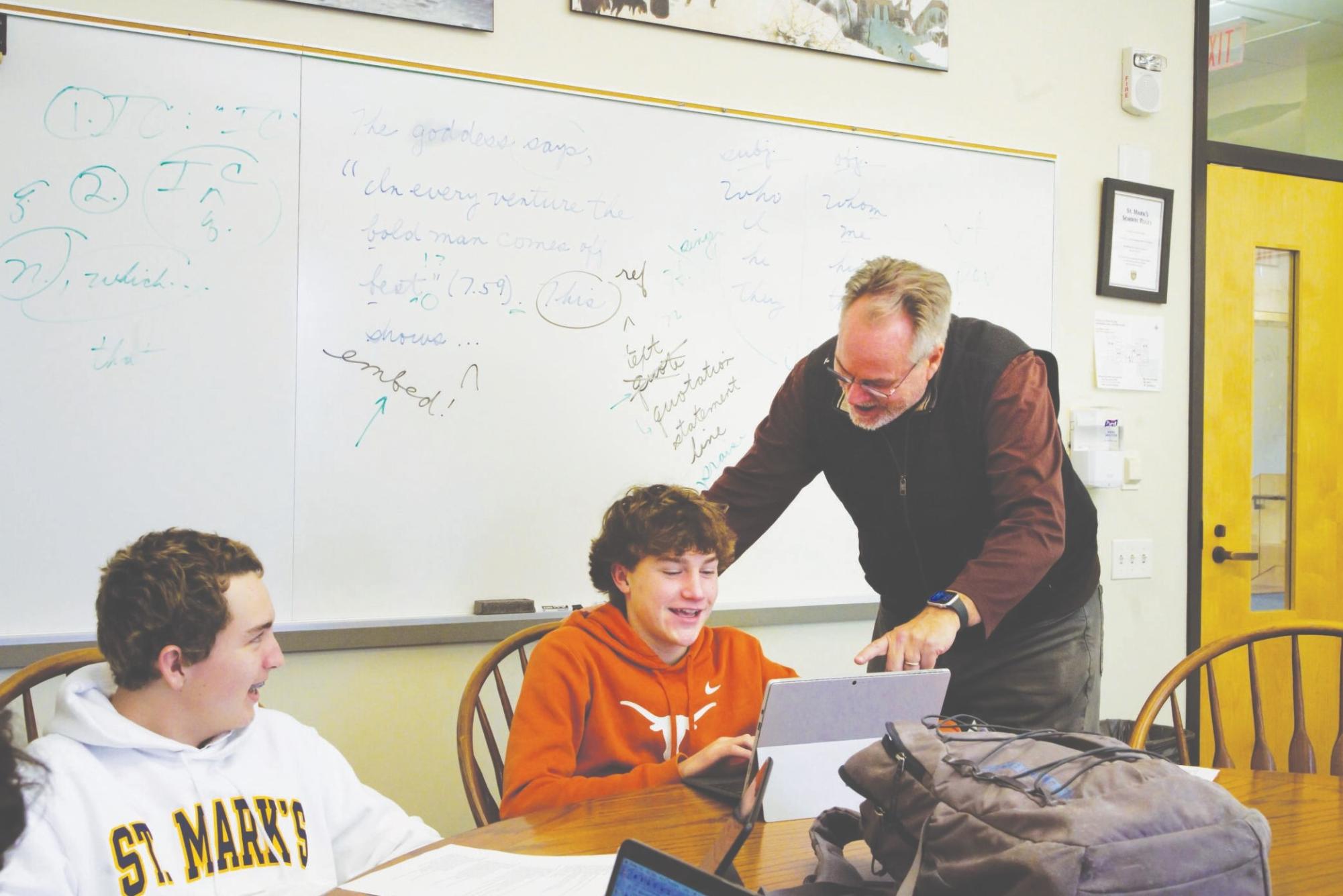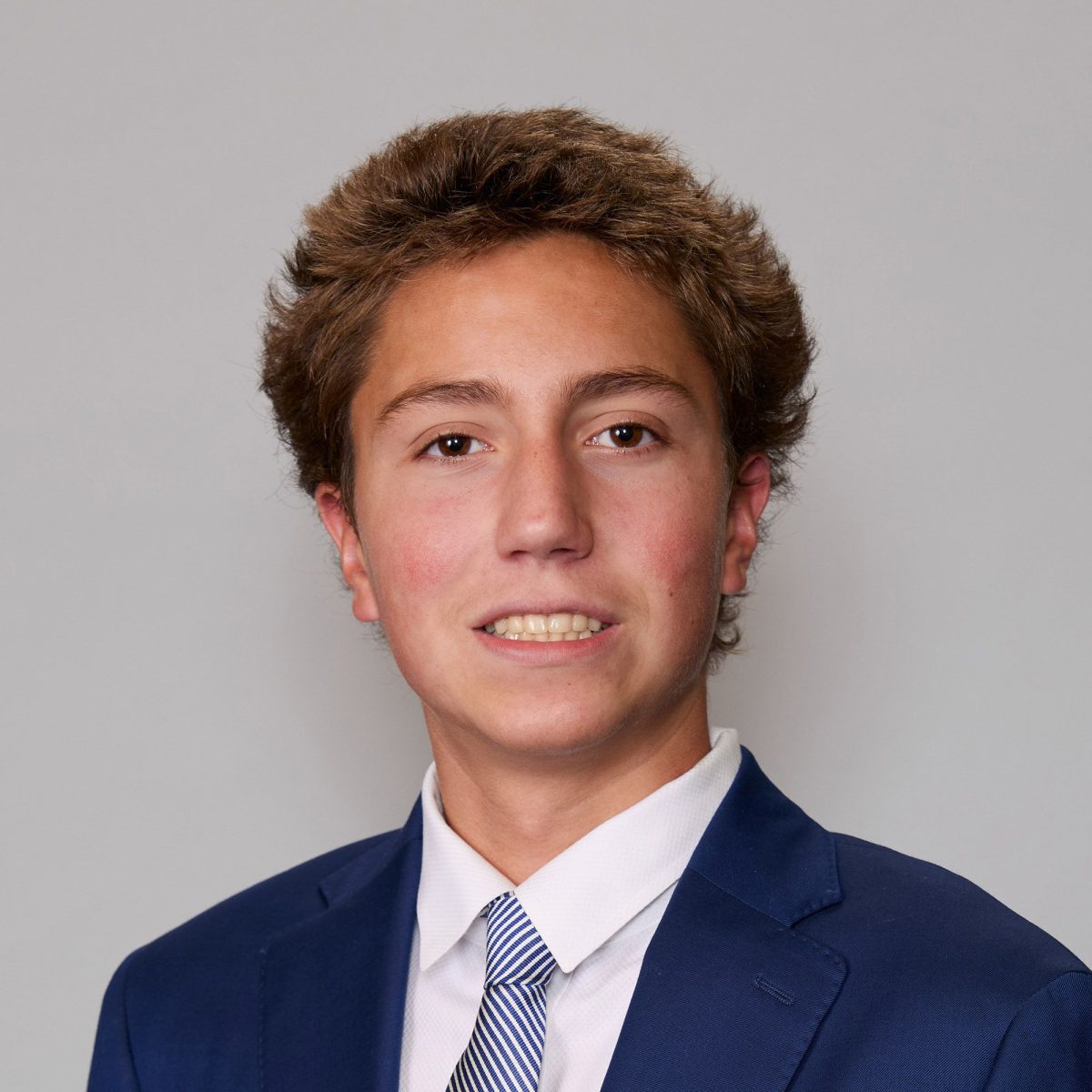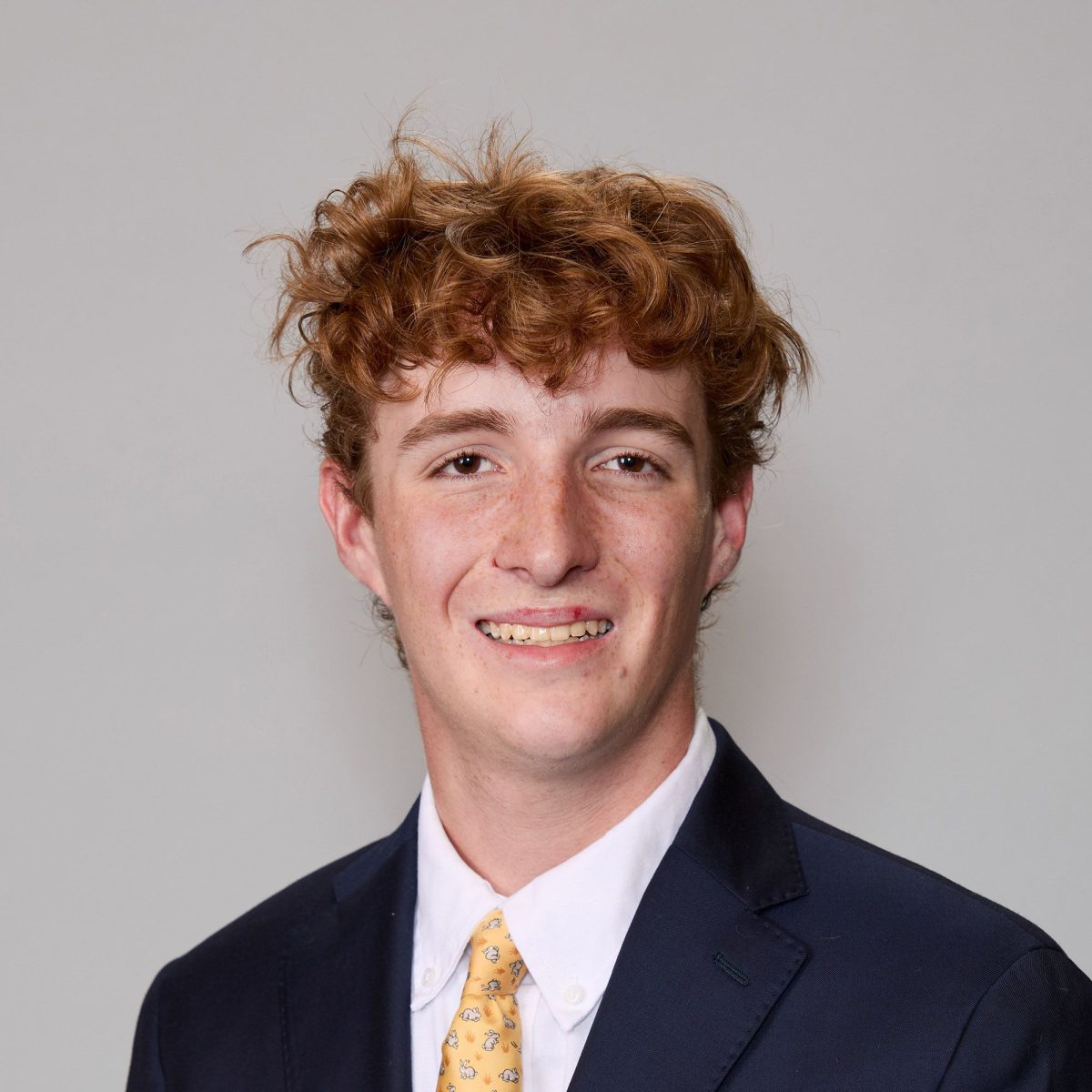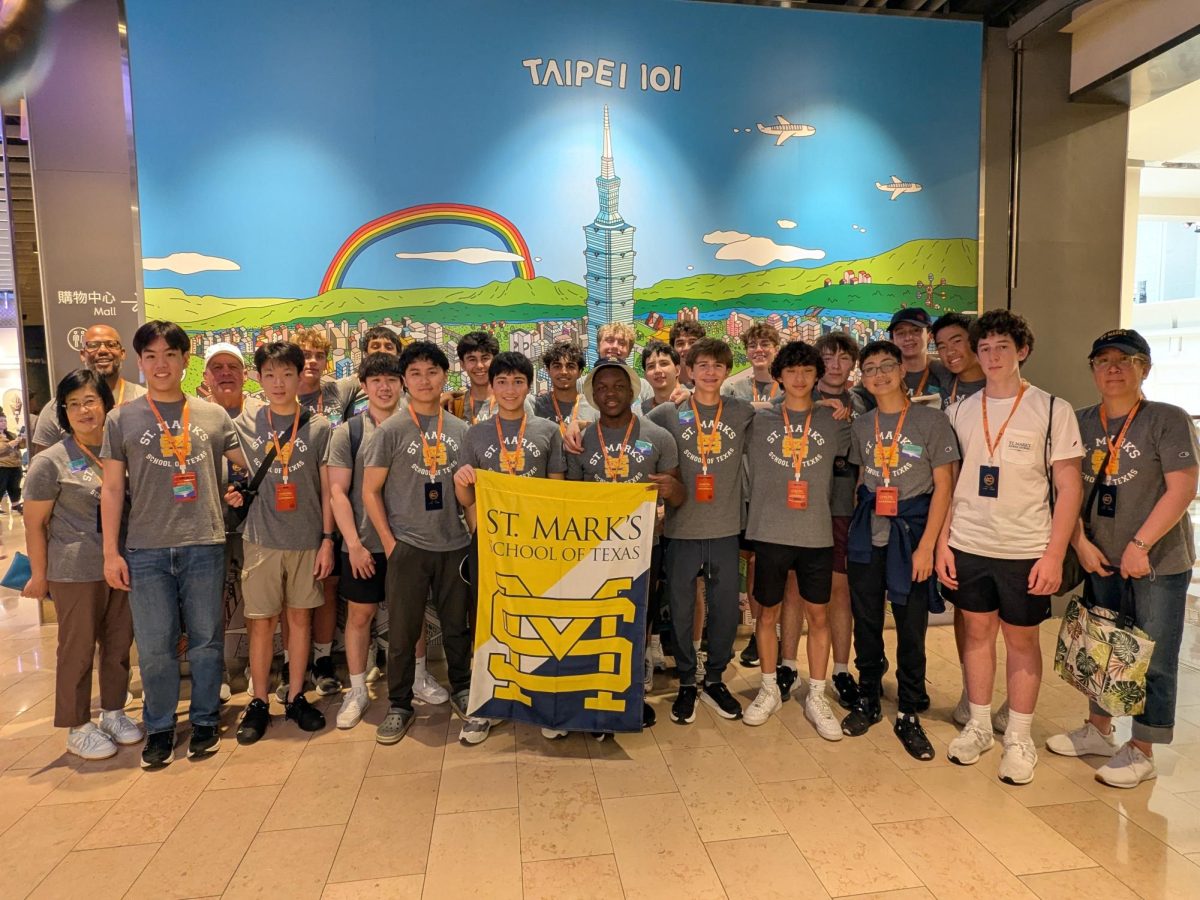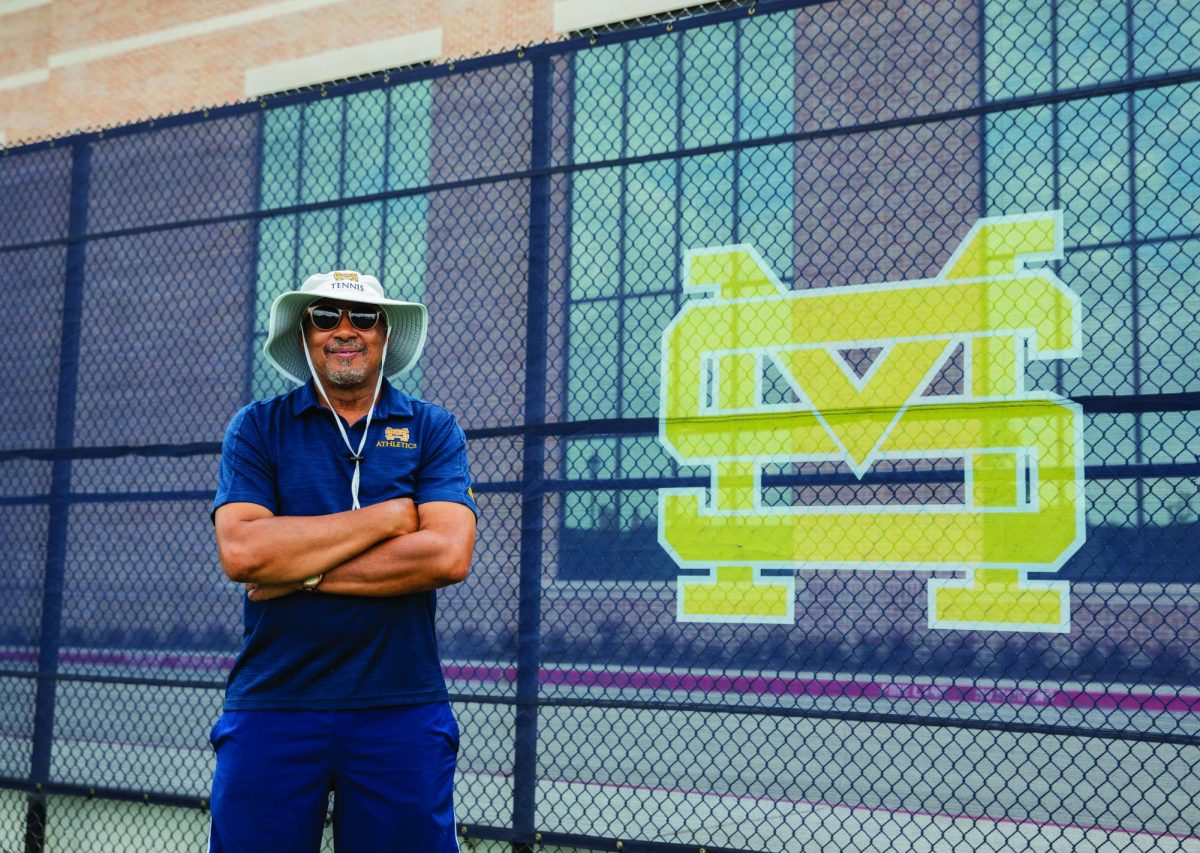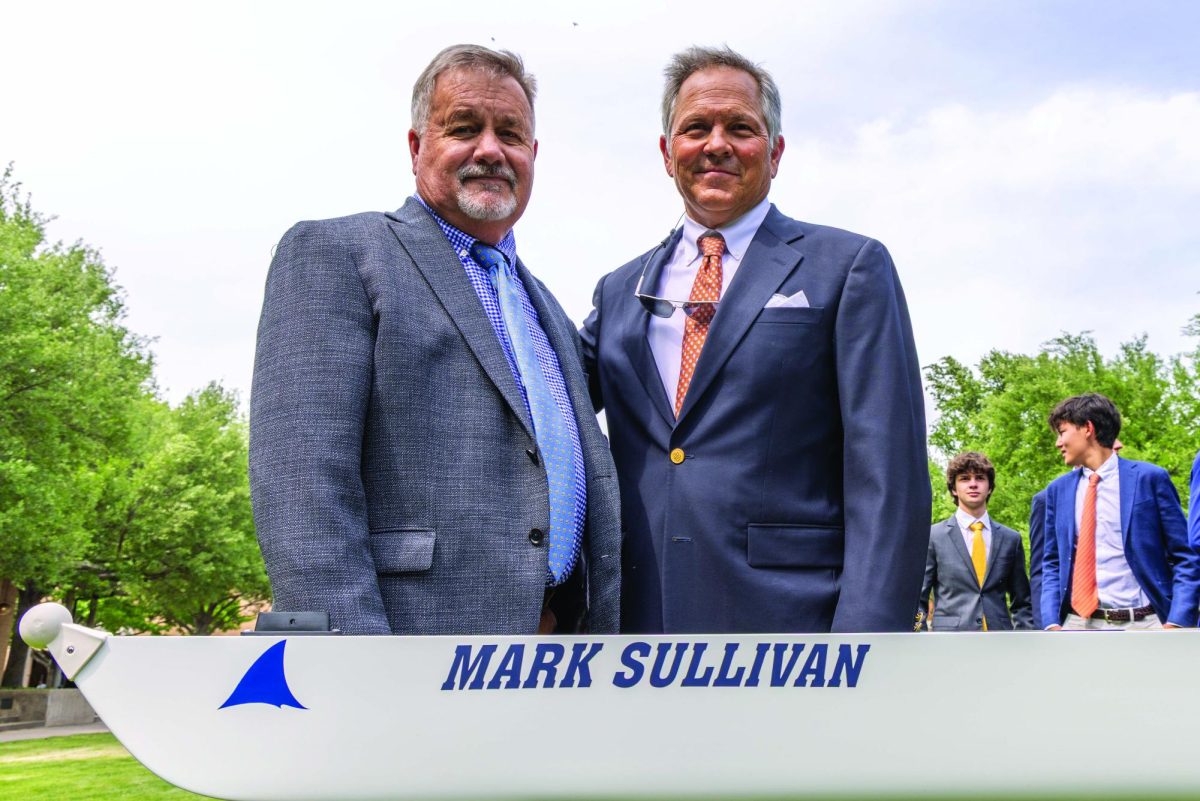Fifth-grade humanities instructor Eric Slingerland had always tried to stay on the beaten path.
After being exposed to Wall Street life as a freshman in college, he chose to join the close to 40 percent of Harvard graduates who seek consulting or finance jobs.
He did everything he was supposed to — worked day and night trying to secure a job in the competitive investment banking scene, interned over the summer at a private equity firm in Boston and earned a master’s degree at the University of Virginia.
But after four months of working his first investment banking job, he quit his job in search of something different. In search of a profession that gave him purpose and made him feel like he was making a difference.
He wasn’t sure what he was going to do next. He knew he wanted to travel and immerse himself in a different culture. And he knew he wanted to do something he was good at and, most importantly, enjoyed. He thought about the summer after his junior year, when he taught at a boarding school. He loved doing that.
So he googled, “Teaching Opportunities Abroad” and applied for a position online.
Just two months later, he was teaching English at a Buxiban, a private tutoring center, for students in Taiwan.
Now, well off the beaten path, Slingerland had finally found the profession he loved – teaching.
“I don’t know how many Harvard graduates go to Taiwan and teach at a Buxiban,” Slingerland said. “Probably few. I decided to move to Taiwan only after I was confident that I didn’t want to continue working in finance, a path that I had worked so hard to follow.”
He had spent five years worth of time, effort, and money trying to find a job in investment banking. And now, he never wanted to work in a bank again.
“I’m not judging the field of finance,” Slingerland said. “It does serve a critical role, but I didn’t feel the sense of purpose that I wanted to feel in my job.”
Slingerland believes that people have an ethical responsibility to give back to the society they’re a part of, and he couldn’t find a way for him to do that in the world of finance.
Now, as a teacher, Slingerland has found what he calls his purpose — his ability to make a positive difference in the world.
“I love working with kids,” Slingerland said. “I love teaching skills I’m passionate about and being able to share what I love to do and what things interest me. To be able to pass those along to kids and spark that same intellectual curiosity gives me a sense of purpose.”
Across the U.S., only about half of all workers are satisfied with their current profession, according to PewResearch polls.
While it can be hard for individuals to change career paths once they have entered the workforce, Malcolm K. and Minda Brachman Master Teaching Chair Dr. Martin Stegemoeller knows it is important to follow one’s passions when pursuing a career.
“You want to enjoy what you’re doing,” Stegemoeller said, “And the idea that you would work a 60-hour week and dislike most of that work. That’s just a missed opportunity.”
Stegemoeller initially thought he would pursue investment banking heading into college, inspired by a strong economy and booming stock market. But after starting out in college studying math and economics, Stegemoeller realized he wasn’t on the best path for himself.
“I wasn’t genuinely interested,” Stegemoeller said.
But after taking one philosophy class in college to fill a curriculum requirement, Stegemoeller knew what he wanted to do.
“The material struck home so much that I thought, ‘I want to keep thinking about these things,’” Stegemoeller said, “And one of the best ways to think about them is to teach them.”
Stegemoeller was confident in his decision to change his track of study in college to philosophy, but his parents warned him of the limited number of job opportunities after college.
While he was thankful for their advice and guidance, Stegemoeller was sure that teaching philosophy was the path he wanted to follow, beginning his career teaching philosophy in graduate school at Vanderbilt University.
Coming out of graduate school, his professors strongly encouraged him to pursue a career teaching in college, which did not coincide with Stegemoeller’s initial plans.
“To me,” Stegemoeller said, “High school was the scene of the crime. My thought was that as soon as I started thinking about teaching, after grad school, I wanted to teach high school.”
But after receiving a job offer from the University of Alabama, Stegemoeller decided to heed their advice, accepting the position. Just three years later, however, his desire to teach high school remained, and to the dismay of his professors, he made the transition to St. Mark’s to teach 10th and 12th grade English.
“It was really stunning,” Stegemoeller said, “that there was such a bias against high school even among educators. That made me really sad.”
Now having taught at St. Mark’s for 20 years, Stegemoeller is glad he made the switch. He feels that his job teaching students coincides with his continued learning of the concepts and ideals he has been studying since college.
“I desperately needed to think through ethical things in my own life,” Stegemoeller said. “That’s what made it right for me. I think that has colored in a positive way my ability to convey to kids that this stuff actually matters. And it’s not just an academic subject. I have no interest in philosophy as an academic subject at all, I never have. I’ve always viewed it as utterly personal.”
“YOU WANT TO ENJOY WHAT YOU’RE DOING, AND THE IDEA THAT YOU WOULD WORK A 60-HOUR WEEK AND DISLIKE MOST OF THAT WORK. THAT’S JUST A MISSED OPPORTUNITY. ”
Dr. Martin Stegemoeller
Over the last several years, Stegemoeller has taught eighth grade humanities, which has given him the opportunity to teach American history while still incorporating philosophy into his teaching.
“American history is so interesting to me now,” Stegemoeller said. “It’s such a big part of what I care about. I think I’m a much better American as a result of teaching it.”
Continuing to teach and learn philosophy has been a rewarding experience that Stegemoeller has applied to all aspects of his life.
Robert Pou ‘21 has always wanted his career to align with his passions. He began learning about his passion, investing, during middle school and joined the Investment Club during his time at St. Mark’s.
He initially attended Georgetown University, mostly due to its prestige, but ended up transferring to Texas A&M because it was a much better fit for him. In the future, he hopes to not make the same mistake as he did when applying for college while applying to jobs.
“When it comes to the next chapter of my life post undergrad, I’m not going to let my salary or the prestige of the firm dictate whether I accept a particular job,” Pou said. “It matters to an extent, but it’s definitely not the biggest factor.”
In the end, however, Pou believes that one’s major will not directly impact their future salary and that one can find a sustainable career in whatever field of interest they pursue as long as they work hard and give 100 percent effort.
“I think one of the most important things about college is not necessarily the knowledge you gain in a particular class, but rather the fact that you can tell an employer you graduated from a university,” Pou said. “It means you showed up to these classes consistently, maintained a schedule and earned your degree. It tells an employer you’re employable, so to a certain extent it doesn’t matter what major you’re in, because if you work hard, the sky’s the limit.”
On the other hand, alumnus Josh Mysore ’21 has always known to pursue his passions in college while maintaining an openness to other career fields.
As a current Harvard student who majors in both social sciences and computer science, Mysore is currently undecided on his future career plans.
Mysore believes that following one’s passion for a job may come with some challenges, but posits it is worth it to continue to work in an environment that one enjoys. Discovering these passions occur at various points in life, and for Mysore, it happened during the first semester of his time at Harvard.
“I was very into language learning, and when I learned that computers can understand human language, that was my first interest in computer science,” Mysore said. “I took linear algebra and introduction to computer sciences my freshman fall, and they were phenomenal courses. I think that really jump-started my interest in computer science.”
Finally, when considering his future job, Mysore believes the kind of lifestyle one wants to live plays a big role in considering their job.
“I think the most important thing to consider is talking about passion versus financial capital, and that balance is, without a doubt, what you want out of a lifestyle, because it comes down to asking yourself if you’re comfortable earning less than your peers and living with less money,” Mysore said. “Do you want to just have a stable, secure job and have a good income, but maybe not be as passionate about it?”

